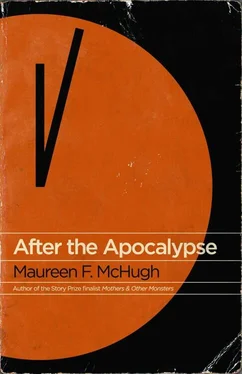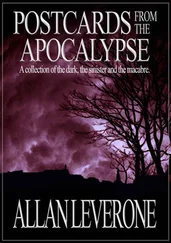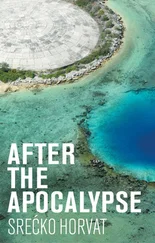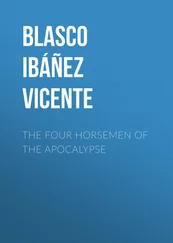Dissociative fugue is a condition where a person leaves home for hours, sometimes months. They have no memory of who they are and sometimes adopts another identity.
Two months after the Reverend Ansel Bourne disappeared from his home in Providence in January 1887, his nephew got a telegram telling him that a man in Norristown, PA, was acting strangely and claiming to be Ansel Bourne. Six weeks before, a man calling himself A. Brown had opened a fruit and candy store. He was normal, rather quiet. He cooked his meals in the back of his shop. One day Ansel Bourne “woke up” and found himself in a strange town. He had no memory of A. Brown and no idea where he was.
William James hypnotized Ansel Bourne and was able to call forth “A. Brown.” A. Brown had never heard of Ansel Bourne. He complained that he felt “hedged in at both ends” because he could remember nothing before opening his shop and nothing from the time Ansel Bourne had woken up. Why had he come to Norristown? He said “there was trouble back there” and “he wanted rest.”
Ansel Bourne’s case perfectly fit the psychoanalytic category of hysteria, a diagnosis that was prevalent at the turn of the twentieth century but which has largely disappeared. He was a very intellectual man with high standards for behavior, who had disassociated himself from a life that exhausted him and picked up a different life. Bourne, it was said, had a strong aversion to trade. The personality of Brown was a shrunken version of Bourne.
Today we can surmise that starting a store from scratch, traveling to Philadelphia to establish suppliers, joining a new community, and learning a new town may not be ‘simpler’ than the intellectual life of a well-off, comfortable reverend. Like my assumptions about Simon, William James’s analysis of Ansel Bourne includes unexamined assumptions about class and personality.
Simon took me for a ride in his Civic (which was far better maintained than mine ever had been). He was a good driver. He was interested in autocross and was saving money to take a class. I’m no judge of drivers, but I would say he had a natural feel for driving. While we were driving around the park, I asked him if he felt as if William was a different person.
“No,” he said. “I’m William, too.”
“Does it make you feel odd to be called William?” I asked.
He nodded, concentrating as he took a turn. “If people are calling me William, then Brookneal feels, you know, kind of not real. But if people are calling me Simon, then I can not worry about that.”
“Do you ever think about Pikesville?” I asked.
“I don’t like to,” he said. And then the conversation turned back to cars.
Dissociative fugue is most common after some sort of trauma. It is mostly likely to occur after combat or natural disaster. It is assumed that the events in Baltimore triggered William/Simon’s fugue. It is just not known exactly what happened to him. Or why, unlike most people, after a few hours or a few days, or, at most, a few weeks, he didn’t tell someone his real name or seek his family out.
Luz Anitas Weil, William’s mother, was at work when two dirty bombs exploded in Baltimore. A divorced mother of three, she lived in Pikesville, a suburb north and west of Baltimore. The Weils were not the typical Pikesville family. Hispanics make up about one percent of the student population. They’re outnumbered by whites, blacks, and Asians. Luz had hung on in Pikesville after her divorce because she thought that her kids would get a better education there. More important, she thought they would grow up thinking middle class. Luz grew up in Belton, Texas. Her father runs a landscaping company. She met Nick Weil when he was stationed at Fort Hood. They were engaged in six weeks, married in nine months. Luz says, “We partied pretty hard. I was a wild child. We drank too much. We had big fights. I gave as good as I got.” After two and a half more years, Nick Weil was discharged and they returned to Maryland. Soon after, Luz got pregnant and had William. She shrugs. “After William was born, I stopped partying. I stopped drinking. Nick didn’t. That’s when I realized his hitting me, that wasn’t us fighting, that was abuse.” They tried going to counseling. A second boy, Robert, was born two years after William. After that, they were separated for two years and got back together instead of divorcing, and seven years after William, Inez was born. But by then Luz says she knew it was over, and they were divorced soon after.
She got a job working in the kitchen at the Woodholme Country Club. Fancy dinners for fancy people. It was the first place in Maryland where she was around people speaking Spanish. Like a lot of restaurants and kitchens, most of the help was from Central America. But they were men and they didn’t have much patience with a Texas-born Latina. “Every day I had to prove myself again,” Luz said. Which she did, moving up until she was catering. “You know, thirty-thousand-dollar weddings, where everything has to be just right.” She liked the work, except for the hours, which, she felt, kept her away from her kids too much. When someone came into the kitchen that Friday afternoon and said, “There’s been a bomb,” she says she didn’t understand. “I thought they meant that there had been a bomb at Woodholme. The first thing I thought was that I didn’t hear anything, you know? I thought it couldn’t be that big a deal.” Normally, William, then 13, would have been home with his brother and sister—Robert, 11 and Inez, 6. William was the oldest and had just that year turned old enough to babysit. Child care was expensive, and having a child old enough to watch the other two was making a huge difference. But William was at the Maryland Science Museum in the IMAX Theater with his seventh-grade class. They were watching Andean Condors, Lords of the High Reaches when the first bomb exploded across the harbor in Patterson Park. The wind from the northwest pushed the plume south and east across Dundalk, away from Harborplace and the museums.
William’s classmates say he was there at the IMAX, but no one knows what happened next. William says he doesn’t remember. For the famous fifty-one minutes when no one knew the bomb was a dirty bomb and that radioactive materials were being dispersed in the plume, William’s class continued to enjoy the museum. Several boys got in trouble for getting each other wet with an exhibit and then a drinking fountain. The first indication that there was any trouble was when the museum announced that they would be closing. It was 2:35. Cell phones started ringing with parents checking on their children. At 2:42, the second bomb exploded near the Baltimore Washington International Airport. By the time the buses were rolling for Pikesville, roads were already congested.
William wasn’t on his bus.
No one knows what happened or how he got separated. Teachers did counts and called attendance, but it was pretty chaotic. Kids were on cell phones and not paying attention. Children were crying. Teachers were trying to check on their own families. The cell phone system was completely overloaded, and people couldn’t get anything beyond the “circuits are busy” message. Luz was trying to call William and getting no answer.
Luz was at the school with Robert and Inez in the car when the buses got to Pikesville Middle School. The car was packed with clothes, photo albums, and the cat, Splinter. Luz says she waited with growing dread as the buses emptied and left, one by one. When William didn’t get off with his classmates, she told herself he was on another bus. But eventually, all the busses were emptied. She went and found the assistant principal and told him that William hadn’t gotten off. The assistant principal assumed that she had just missed him in the crowd, and they searched inside the school.
Читать дальше












